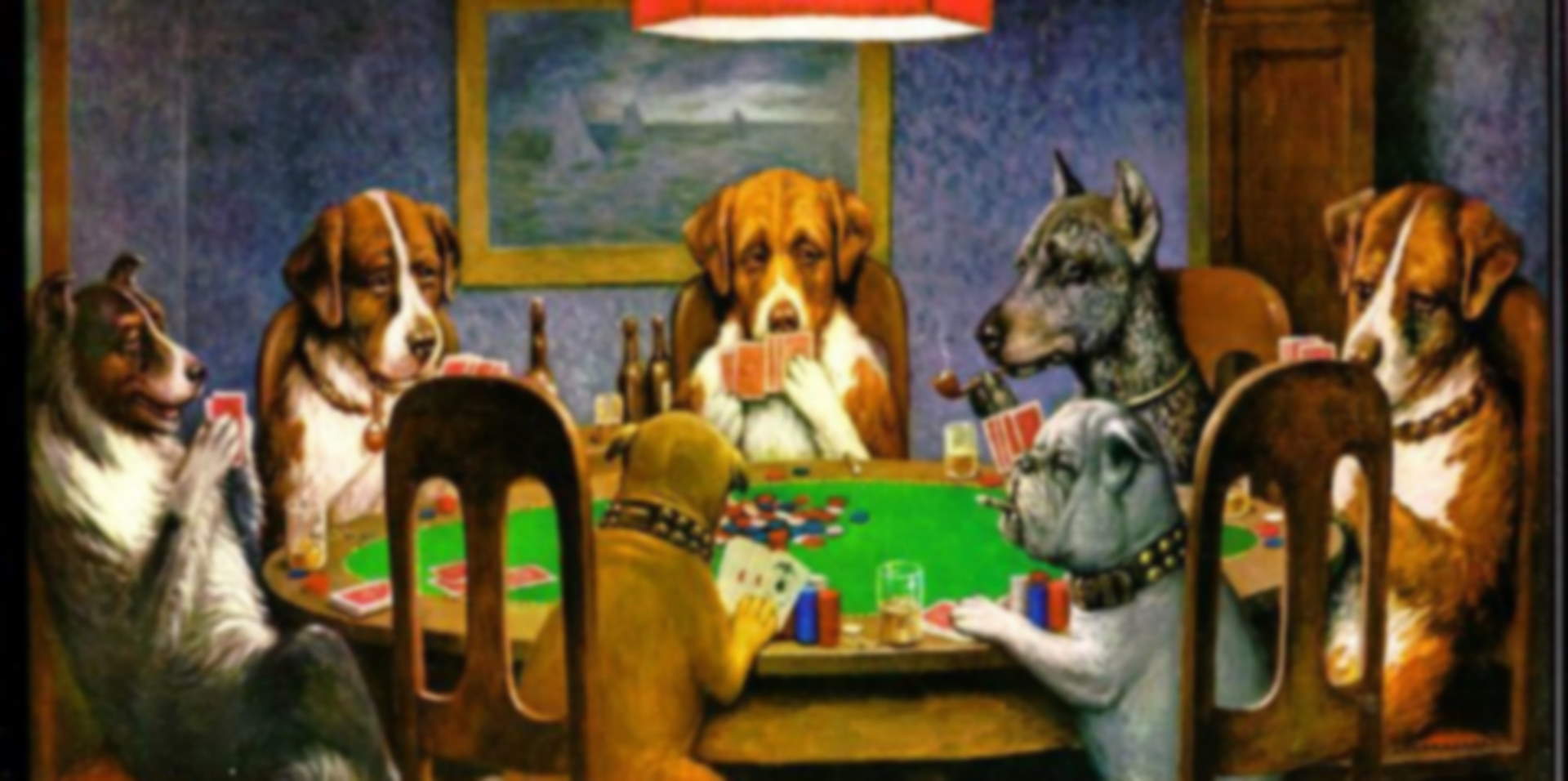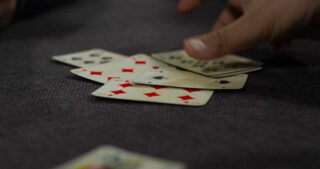

In my first column coming back to Card Player I thought I would address some of the things that separates the players good enough to be pros (if they want) from the merely good players who can’t make a living playing poker. I am talking about the 500 or so professional or expert poker players who make at least $50,000 a year (or $20 an hour) in public ring games routinely spread by cardrooms around the country. But I am not talking about players who usually play in short handed games, pot limit or no limit games, ultra high limits, or those who specialize in tournaments. Somewhat different skills apply in these cases. And there are less than 100 pros in these four other categories.
The 500 or so players I speak of are almost all unknown to the public at large. They ply their tools at games ranging from $15-$30 to $80-$160 gathering neither fame nor great fortune. But make no mistake about it. They are the best poker players in the world. In some cases they are better than many of those “world class” players you have heard of. At least at their specialty. Many of these famous pros got their notoriety from tournaments or no limit poker. Others play a great limit game but typically play shorthanded high stakes against other good players and they often play multiple games. The workaday pro on the other hand usually plays only one game at a full table that normally contains two or three weak playing amateurs. Put a world class famous player in that game and he will probably rate to do a bit worse than the pro (though he will still win easily).
So what skills really separate the day to day pro or expert from those merely good players (who beat smaller games badly but basically break even in $15-$30 and above)? I will mention some of those things shortly but first I will tell you what it is not.
1. It is not “discipline.” It is a common theme among non-successful players that their one weakness is “steaming” or “going on tilt” when they are losing. And there is no doubt that they do. This of course clearly hurts them. To play less than your best game at all times costs money. And bad players do it all the time. So do a few pros. Agreed. But marginal aspiring pros almost never do. It is common sense. Think about it. It is completely obvious that you need discipline to achieve maximum long tern results. And being disciplined takes no special skill. My mother could do it from day one. The only downside to it is that being disciplined means you are less likely to “get even” on days you are big loser. Which is why many amateurs and a few pros sometimes steam. But it is hard for me to believe that very good (but not great) players whose best game will earn them a nice living, and who in fact aspire to that, would throw it all away by making an irrefutable mistake. It wouldn’t be hard to resist the natural inclination to play looser to try and get even for the day if such practices could ruin your whole career.
It is my sincere opinion that unsuccessful poker players who claim they could be significant winners if they only had discipline are lying to themselves. If it was really true they would get the discipline. There were probably in fact times when they forced discipline upon themselves only to find they still didn’t win. So now they lose their discipline and consciously or unconsciously use it as an excuse.
Don’t get me wrong. Discipline is an important attribute for the pro poker player. But it is like the poker face. It is easy to get and it isn’t what separates the winners from the losers.
2. It is not “money management.” Again we have a concept that losing or break even players bring up to avoid the admission that poker skills are lacking. Another “poker face” excuse. They would be long tern winners if they would only quit before blowing their winnings back, or before becoming big losers. Of course, this is even worse than the discipline excuse because unlike discipline, money management is a largely fallacious concept. With a few exceptions you play as long as you have a nice edge regardless of how much you are winning or losing. Anyone who is playing their best at all times can never blame money management skills for their lack of poker success.
An important point should be made about this subject however. By “money management” I mean picking quitting times. The same term is sometimes used to mean playing with an adequate bankroll. I call that “bankroll management” which is indeed important.
3. It is not bankroll management. Another excuse unsuccessful poker players make is that they would win if they didn’t overplay their bankroll. There is some truth to that but not in the long run. If for instance you get into a $30-$60 game with $5,000 to your name, you are a favorite to go bust no matter how well you play. But not if you have done this several times. Eventually you should get lucky enough with that buy-in to bring it up to a point where you will never look back. If you don’t, it’s because you can’t beat that game. I do know a few broke pros who could make a living at moderate games yet insist on playing stakes where they can’t win. But that is a rare bird.
4. It’s (usually) not game selection. Please understand. Like discipline, picking good games to play in is very important. But it is also a simple thing to do. Thus it is not likely that someone good enough to make a living if and only if he used good game selection would fail to do it. (There might be a few egomaniac exceptions however.)
5. It’s not picking up generic tells. Deciding upon an opponents hand based on physical cues can be a somewhat valuable skill to a professional poker player. But he better be able to win without it. In bigger games you can’t count on finding players who give off these tells. Furthermore in limit games tells that are not 100 percent accurate are of little value. Because of pot odds, imperfect tells usually won’t change your strategy.
By generic tells I mean stuff that is meant to apply to players in general. E.g. they act strong when they are weak. In bigger games it would be suicide to place stock in generalities like that. They could too easily be reversed on you. When pros deduce tells, it is on an individual basis after careful observation of the opponent in question. Again though, if you are not a pro caliber player it is not because you don’t pick up tells.
6. It’s not (usually) image portrayal. If having a loose image was a main factor to someone’s poker success why aren’t more people doing it? It’s not that hard. At least not as hard as learning to play well. The answer is that in limit ring games, the extra calls you might get are not worth the cost of that image. If the cards from your previous hands have made you appear loose that’s a different story. Take advantage of that. Likewise the converse (bluff more if they think you are tight). But cultivating a particular image is not what these hardworking pros in eight to ten handed ring games do to get the money.
There is one exception however to my other comments about the image concept. That is that it is very important not to have a “serious” image. One where you make it obvious to the whole table that you are taking the game and the money very seriously. Seeing that, opponents will both tighten up against you and make strategic bluffs (that are likely to work) against you only. A serious image is not the same as a tight image. Those with tight images can still cavalierly toss in their chips without much thought when they do play. They can also get away with more bluffs than the serious player who will be more suspected of contemplating a bluff.
The serious image, when you’rr agonizing over many decisions, never smile, look intent, etc., is in fact a possible cause of a good player failing in poker. It could easily cost you ten dollars an hour or more. Thus it is the one aspect of poker, besides knowing how to play well, that truly does keep some players from becoming successful pros.
7. It is not knowing the odds. Those who are surprised I say that do not know me well. Many losing poker players know the chances of improving various hands absolutely cold. Some losing poker players even know how to calculate it themselves. Conversely there are many successful poker pros who know no probability and who only estimate chances of improvement. Properly applied, math can be very important in poker. Especially if you include Game Theory, logic, Baye’s Theorem, and reading hands with the help of card distributions. But simply knowing improvement percentages perfectly (as opposed to decent approximations) is almost worthless.
So what are those things that really do separate the medium stakes pro or expert from the wannabes?
TO BE CONTINUED
David Sklansky
Dieser Artikel erschien auf PokerOlymp am 03.07.2007.


